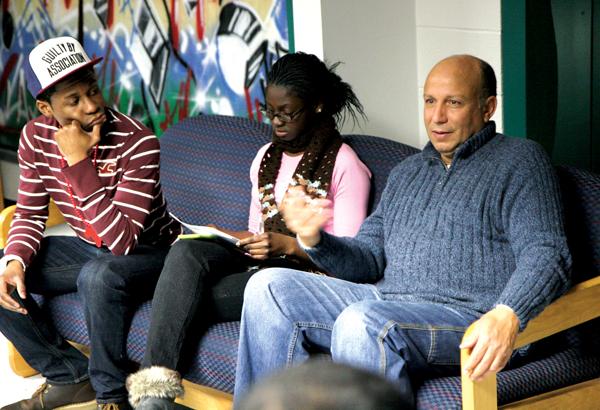
The African Student Organization hosted a discussion on the current political turmoil in Egypt at 7 p.m. yesterday in room 310 of the New University Union.
Moulay Bouanani, a professor of Africana studies at Binghamton University, was the event’s featured speaker and gave an overview of the recent Egyptian unrest.
Bouanani said that hopeful sentiments surrounding what many in Egypt and elsewhere have described as the democratic aspirations of the Egyptian people may be misplaced. According to Bouanani, Egyptian President Hosni Mubarak, whose rule is being challenged, has no intentions of leaving.
“He is an old man and is very stubborn,” Bouanani said.
The Africana Studies professor chronicled the 30-year reign of Mubarak, who came into power in 1981 after the assassination of Muhammad Anwar El Sadat.
Bouanani said that the Mubarak regime had been harmful to the country.
“[Mubarak] has been clinging to power at the expense of the Egyptian people,” Bouanani said.
He said that the media has misconstrued the reasons underlying the political foment taking place in Egypt, claiming it centers on demands for greater civil rights, not economic development or religious fundamentalism.
“The media shows Egyptians are rioting and demonstrating in the streets because they are hungry. Egyptians are not hungry … we heard a lot of talk about the fear in Israel and U.S. about the Muslim Brotherhood,” Bouanani said.
Though Bouanani regarded the Muslim Brotherhood, Egypt’s largest opposition group, as benign, some are deeply concerned about what would happen in the Middle East if the Brotherhood rose to power. The organization’s founder, Hassan al-Banna, spoke of “jihad as a struggle against colonialism and Zionism,” according to a report in The New York Times detailing the Muslim Brotherhood. The same report stated that its leaders “have endorsed acts of terrorism against Israel.”
Yossi Klein Halevi, a fellow at the Shalom Hartman Institute and a contributing editor to The New Republic, also expressed concern in The New York Times that the Muslim Brotherhood was a danger.
“The Muslim Brotherhood has long stated its opposition to peace with Israel and has pledged to revoke the 1979 Egyptian-Israeli peace treaty if it comes into power [in Egypt],” Halevi wrote.
But Bouanani insisted that western media infrequently strayed from its standard representation of the region.
“Egypt is a different experience from Iran,” he said. “I suspect [American media] would only focus on certain types of people: veils, robes, shrieking.”
Bouanani said that American interests in Egypt were detrimental to democracy and supportive of an autocratic regime.
“The West uses double standards. The United States has much interest in befriending those dictators,” he said. Bouanani added that there is a long history of resentment that stems from U.S. intervention in the politics of other countries. “Resentment is because of the unquestioned support U.S. gives to those dictators,” Bouanani said.
In answer to a question posed by a student, Bouanani claimed that most American support goes toward building a large Egyptian police force.
“Protesters are afraid to let up because they are afraid of the police machine,” Bouanani said.
Though Bouanani claimed the revolt is not religiously charged, he said this has not stopped religious factions from sympathizing with the protesters’ cause.
“The Christians … made a human chain to protect their Muslim brothers,” Bouanani said.
Though Bouanani said the future would remain largely uncertain, he was willing to make at least one prediction.
“They’ll come up with someone who is more competent,” Bouanani said.


